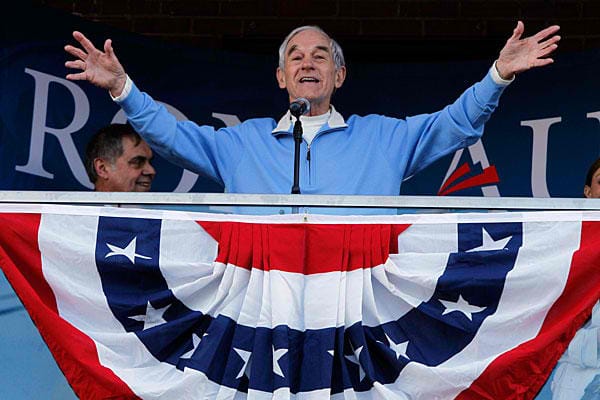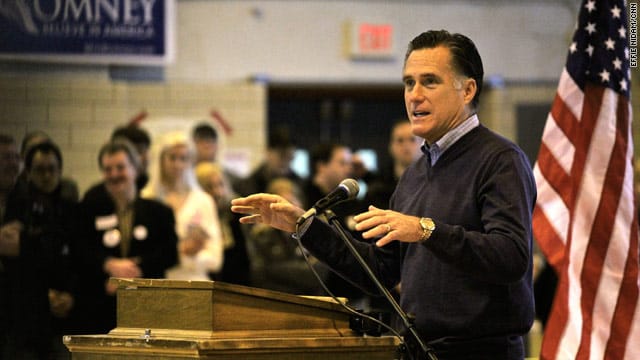Ron Paul Could Lead in Delegate Count


As we noted last week, GOP delegate process is far more complicated than the mainstream media leads people to believe. The primary process is not always as simple as winning the most votes and therefore winning the most delegates. This has only been the case in winner-take-all elections, of which there’s only been two, so far: Florida and South Carolina.
In states which hold caucuses, to date Iowa, Nevada, Colorado, Minnesota and Maine, there have been two functions. Round 1, is a “beauty contest” and usually consists of a straw poll. These make good headlines and continue the dramatic storytelling of candidates surging and frontrunners flailing. Round 2 is a bit trickier and contains multiple cycles of selecting delegates. In caucus states, choosing delegates first occurs at a local convention, which then chooses delegates to a state convention, who in turn choose the delegates to go to represent their wishes at the National Republican Convention in Tampa. Imagine Wolf Blitzer explaining this to you. Can't? That is not surprising.
While anecdotal, evidence exists that Dr. Paul’s slates have dominated the process in terms of selecting delegates who choose delegates. While Dr. Paul's campaign is confident, their facts will have to face a reality check in all these caucus states – but those are outcomes no one will know for at least 3 months. One interesting event is for certain, in Iowa last week, A.J. Spiker was elected State Republican Party Chair. Mr. Spiker happens to be a key Paul supporter, a fact which begins to lend credibility to Dr. Paul and his campaign. Their campaign walking away with a sweep of Iowa delegates doesn't seem so crazy now.
This domination of the organizational process by Dr. Paul should come as no surprise and is only starting to warrant investigation by mainstream sources. Doug Wead, adviser for the Paul campaign, explained the Republican nominating process in depth on a recent edition of The Rachel Maddow Show on MSNBC. As he explained, unless delegates chosen by the candidate’s campaign are in fact chosen in a primary, then no delegates should be prematurely allocated to that candidate. The Washington Post is also catching on, with a recent article detailing this issue vis-à-vis the Maine Caucuses while making similar points.
In that article, Dr. Paul supporter explained:
“The delegate race (matters more), for sure,” said Alex Lyscars, a 21-year-old student and Paul supporter from Portland. “I mean, I don’t really care about the straw poll as long as the delegates are representative of what’s going on. (Paul) can win straw polls anywhere he wants, but if he’s not getting the delegates, it doesn’t really matter.”

Back on Maddow's show, Wead also asserted that Dr. Paul may in fact win the most delegates in Nevada once precincts totals are taken into account. Nevada, unlike other states, is a pledged caucus. Due to election complications in 2008, Nevada went to a bound delegate process whereby the caucus determined delegate allocation. While Gov. Romney was the recent statewide winner overall, delegates were also allocated between each of Nevada’s four Congressional districts, with 3 delegates a piece. Translated, this means the true breakdown of “who-got-what” in quantifiable terms may not be known for several weeks.
However, taking what both the Paul campaign and Mr. Wead state as true, it is plausible that Dr. Paul will get all the delegates from Iowa, Colorado, Maine, and Minnesota. That puts him at 125 delegates, far more than Gov. Romney has in reality as of right now.
Don't fight a battle if you don't gain anything by winning.
Wead also made a salient point that Dr. Paul and his team are expertly playing by “the rules”, which they allege were created by the RNC to benefit Gov. Romney. The RNC created proportional allocation rules to avoid Gov. Romney being shut out of large chunks of delegates in the South under statewide winner-take-all rules because he could not carry a true Southern state because of his LDS faith.
Due to this, the Paul campaign is clearly having a major and minor role on the Romney campaign. In caucus states where Gov. Romney support is weak and religious conservatives might actually control the delegate selection process, the large number of Paul supporters turning out in caucuses actually thwart anti-Romney candidates from amassing any significant amount of delegates. Anti-Romney candidates being Sen. Santorum and Speaker Gingrich. This is particularly so due to tax rules that thwart religious organizations from being politically active.
The Republicans find themselves in this situation because of a process that shuts out ordinary voters by design. Maine's recent caucus turnout was the size of one or two moderately large California high school events, while there are over 200,000 registered Republicans in the state. Top Republicans are calling for a review of the methods used in Presidential caucuses after a series of vote-counting issues in three early states. All of this suggests the caucus system may not be a viable option going forward.
Party rules have effectively increased the importance of caucuses by pushing them to the front of the process. The RNC allows only four states to hold their contests before March, but that rule doesn’t apply to caucuses, which don’t technically have a direct impact on the allocation of delegates. The Republicans in turn need to think about abolishing the caucus system all together.
The Republicans would benefit from the California process that has primaries – and only primaries - actually nominating candidates for President. It would increase turnout. They should also open their primary for President as California has and then allocate delegates on a proportionate basis. Those delegates chosen would then be bound to their candidate until released.
Whether Gov. Romney will be the Republican nominee is still unknown. But thanks to Dr. Paul and his caucus strategy, Sen. Santorum needs a statistical miracle to see the light of day from the Oval Office. To be viable he'll need to collect over 400 delegates. Given the schedule, and the continued Gingrich presence, it's a scenario unlikely to happen. Adding to the implausibility, it's looking like Sen. Santorum might not be on several state ballots, including Indiana, a state where his “blue collar” message may have significant resonance.
To the extent that Dr. Paul’s loyal voters increase overall turnout, the new allocation rules actually benefit Gov. Romney. While he may be getting less delegates than might otherwise be the case, these same rules prevent either Sen. Santorum or Speaker Gingrich from meeting thresholds to get any delegates. Whether Dr. Paul can win a winner-take-all statewide Republican primary one-on-one against Gov. Romney will be tested in Virginia. Dr. Paul is by no means insignificant to this race, neither in delegate count nor campaign strategy.
Dr. Paul deliberately chose to run as a Republican but is as close to a viable Independent candidate that we have this Presidential election cycle. It is fascinating to see his campaign play the Republican establishment game more aptly then their traditional candidates. The media narrative of candidate surges throughout the primary process has never included Dr. Paul. He is not even included on delegate count graphs of some mainstream news outlets, despite most of their numbers being just plain wrong.
But, could Dr. Paul be in the lead?
It would make for a dramatic climax to the frenzied Republican primary season, no?




